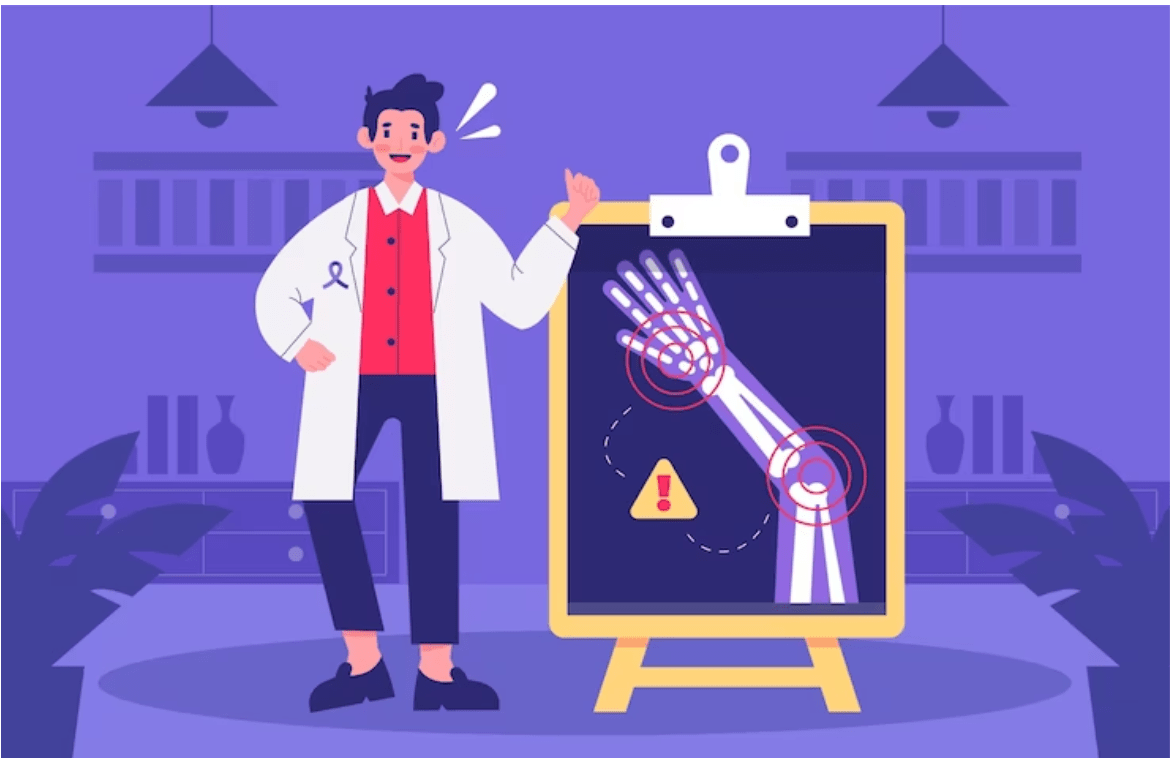Giddiness: Symptoms causes and Homeopathy treatment
What is vertigo?
Vertigo is severe dizziness, or giddiness, a feeling that one feels one’s environment seems to be reeling or spinning. It does differ from simple dizziness or lightheadedness, in that, the experience is one of being in the illusion of a continuous spinning movement for a long period. If one feels one is spinning that’s called subjective vertigo, and the feeling that the area around one is spinning is referred to as objective vertigo.
How does vertigo occur?
Depending on the cause, there are different types of vertigo:
Peripheral vertigo problem does occur when there is a problem with one’s inner ear, which does control balance. The passage of the inner ear has tiny organs that do enable messages to be sent to the brain, in response to gravity. These messages do a relay to the brain when there is a movement away from the vertical position, which does enable people to keep their balance when they stand up. Malfunctioning of this system does produce vertigo.
There are different forms of peripheral vertigo, such as:
o Labyrinthitis
o Benign paroxysmal positional vertigo (BPPV)
o Vestibular neuronitis
o Meniere’s disease
Central vertigo does occur when there is a disturbance in the sensory nerve pathways of the brain.
It does involve a disturbance in one of the following areas:
the brainstem and cerebellum, which are of course the parts that deal with the interaction between the senses of vision as well as balance sensory messages to as well as from the part of the brain referred to as known as the thalamus
A migraine headache is the most common cause of central vertigo. At least 40% of the patients with migraine experience vertigo.
Who is prone to vertigo?
Some people are more prone to vertigo than others:
• people 50 years and older
• people suffering from a migraine
• people who have had a head injury
• people with problems in the inner ear
• people who do have reduced blood flow in part of the brain, known as vertebrobasilar ischemia
• people who also have undergone ear surgery
• people who happen to be undergoing prolonged bed rest due to any illness
What are the causes of vertigo?
As has already been mentioned the main types of vertigo are peripheral vertigo as well as central vertigo.
There are many types of peripheral vertigo that are based on different causes:
Labyrinthitis:
Labyrinthitis is indeed caused by an inner ear infection. It is often accompanied by other symptoms such as fever as well as an earache. Illnesses such as viral fever, cold, flu, or bacterial ear infection often that causes this infection.
Labyrinthitis does make one feel dizzy or a feeling that one is moving when one is not.
Benign paroxysmal positional vertigo (BPPV):
This is the most common form of peripheral vertigo. Tiny calcium particles (canaliths) do clump up in canals of the inner ear, stimulating the small hairs that do line up one’s inner ear and then certain head movements do trigger BPPV. This does confuse one’s brain, thus producing the sensation of dizziness.
Vestibular neuronitis:
This condition is indeed caused as a result of an infection that has spread to the vestibular nerve, which controls the balance. This occurs after a viral infection such as a cold, flu, or any other viral infection. Other symptoms can accompany this condition such as unsteadiness, earache, nausea, as well as vomiting
Meniere’s disease:
This condition does cause vertigo which can last for up to 24 hours. It does usually affect people between the ages of 40 years and 60 years. In this condition, there is a buildup of fluid in the inner ear that can lead to attacks of vertigo. It is accompanied by symptoms such as nausea and vomiting.
Meniere’s disease can also cause hearing loss, ringing in one’s ears, and a feeling of fullness in one’s ears.
Peripheral vertigo can also be caused by:
• a head injury
• reduced blood flow in part of the brain, known as vertebrobasilar ischemia
• labyrinthitis
• ear surgery
• prolonged bed rest
• drug toxicity
• syphilis
• herpes zoster oticus, a viral infection of the ear, also referred to as Ramsay Hunt syndrome
• otosclerosis, a genetic ear bone problem that does cause hearing loss
• perilymphatic fistula, a tear in one or both of the membranes that separate the middle as well as inner ear
Central vertigo, on the other hand, is caused mainly by a migraine.
What are the symptoms of vertigo? How is vertigo diagnosed?
Vertigo is rather a symptom, but it can indeed be accompanied by other symptoms such as.
• Blurred vision
• Fatigue
• A headache
• Weakness
• Lightheadedness
• Inability to concentrate
• Heart palpitations (rapid fluttering of the heart)
• Imbalance
• The sense of motion sickness
• Inability to speak
• Increased risk for motion sickness
• Muscle ache (especially neck pain and back pain)
• Nausea cum vomiting
• Lack of coordination
• Reduced cognitive function (i.e., thinking and memory)
• Sensitivity to bright lights and noise
• Sweating
• Tinnitus
Diagnosis
For a diagnosis, the doctor, who can be a general physician will indeed ask one to complete medical history and also to perform a physical examination. He may also ask one to undergo a blood test to check one’s blood sugar levels. Based on one’s condition he may also suggest one to undertake a CT scan, or MRI, and also an ECG. Depending on one’s particular condition that one may also be referred to an ENT specialist or a neurologist, and or a physiotherapist.
What are the complications of vertigo?
Severe vertigo can definitely be disabling and may also result in complications such as:
• irritability
• loss of self-esteem
• injuries from falls
• lack of coordination
• depression
• double vision(diplopia)
• impaired consciousness
• inability to speak due to muscle impairment(dysarthria)
What is the treatment for vertigo?
Medical Treatment for Vertigo
The doctor may rather prescribe medications for vertigo depending on one’s condition. The medications may cause drowsiness.
Managing Vertigo
Epley Maneuver
Research does show that the Epley maneuver is extremely effective for people with BPPV. One can perform this procedure at home easily:
1. Sit upright on a flat surface, with a pillow behind oneself and with one’s legs outstretched.
2. Turn one’s head slowly 45 degrees to the right.
3. Keeping one’s head tilted, quickly recline with one’s head on the pillow. Stay in this position for at least 30 seconds.
4. Gradually turn one’s head to the left, a full 90 degrees, without lifting one’s neck.
5. Now engaging one’s whole body, turn it to the left so that one is completely on one’s left side.
6. Slowly return to your original position, looking forward and sitting straight up.
One can repeat this exercise three times in a row, and one may feel dizzy during each movement.
Semont-Toupet Maneuver
The Semont-Toupet maneuver is quite similar to the Epley Maneuver but does require less neck flexibility:
1. Place a pillow behind oneself, sit upright on a flat surface, and stretch out one’s legs.
2. Next lie down, turn to one’s right, and look to one’s left side, looking upward.
3. Swiftly sit up and turn to one’s left side, keeping your head facing to your left. You will now be looking down toward the ground.
4. Now very slowly return to one’s original position, looking forward and sitting straight up.
Brandt-Daroff Exercise
One can perform this exercise at home without any supervision:
1. Sit on a flat surface, with one’s legs dangling as they would from a chair.
2. Turn one’s head as far as one can to the left side, then lay to one’s head and torso down on one’s right side. Stay in this position for at least 30 seconds. Do not move one’s legs.
3. Sit up and turn one’s head back to the center position.
4. Repeat this exercise on one’s left side this time by turning one’s head as far as you can to the right side, then laying down on one’s left side.
One can repeat this exercise 5 times and do it 3 times a day, twice a week.
Manage One’s Stress
One needs to learn to do away with stress by indeed being aware of the cause of the stress that one can do away with vertigo. One can practice meditation, or mindfulness techniques. Learn some deep-breathing techniques. This can also drastically reduce one’s stress.
Would one like to consult a doctor for Vertigo (Dizziness)?
Vertigo responds to homeopathic treatment
One can go in for homeopathic treatment for extreme dizziness that presents itself along with a heaviness of eyelids and inability to open the eyes. Homeopathy is indeed a treatment of disease by minute doses of natural substances that do stimulate the body to heal. It is a system of medicine that is used by over 200 million people worldwide, based on the principle of ‘like cures like.’ In one’s practice at Integra, homeopathy is rather accepted as one of the modalities of treatment. Naturopathic care does allow one to explore options for one’s health needs. One must not give up.
Dr. Ankireddy can feel one’s pulse and provide homeopathic treatment in Hyderabad in a holistic manner.









There are no comments